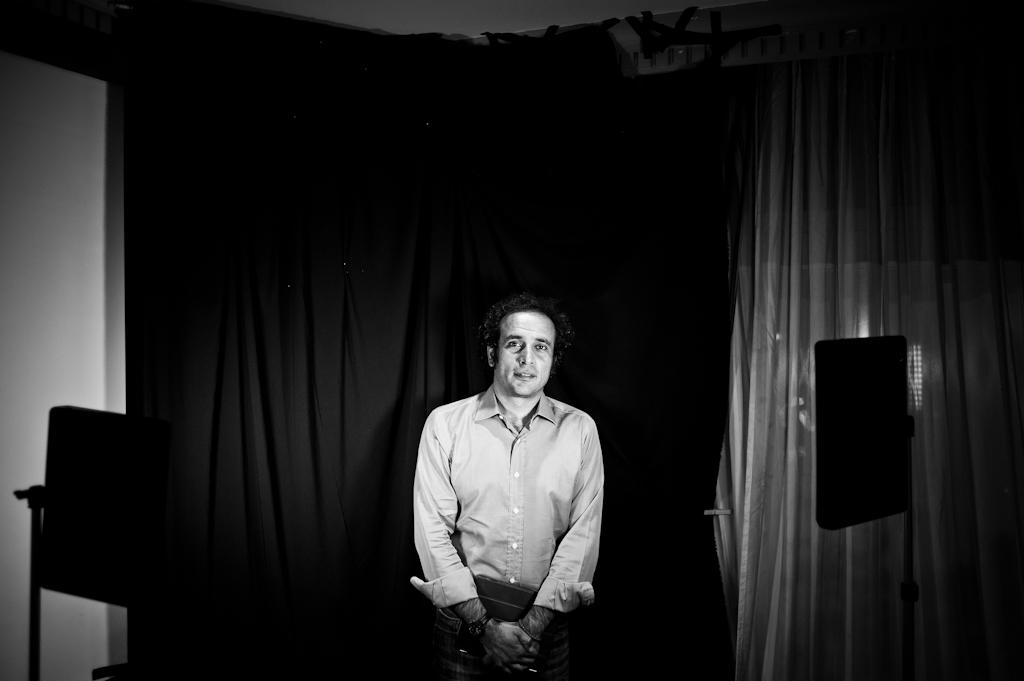Egypt’s path to democracy hits a detour
Egyptian political analyst Amr Hamzawy, recently announced parliamentary candidate.
CAIRO — So how will Egypt navigate its transition from the protests of Tahrir Square to forming a new government?
Amr Hamzawy, a leading political analyst who this week announced his own candidacy for parliament, has always been one of the more sought-after experts here on analyzing what lies ahead.
The scenario Hamzawy painted Friday at a gathering in Cairo for the GlobalPost-Open Hands Initiative reporting fellowship for Egyptian and American journalists was gloomy at best. Here’s how he sees the situation unfolding:
A fragmented parliament that can be easily manipulated by the executive power. A constitution that may secure a special status for the military. A weak civilian regime that serves merely to camouflage the true ruler of the country: the army.
Hamzawy is a professor of political science at Cairo University and the American University in Cairo. Before the revolution, Hamzawy was the research director at the Carnegie Middle East Center in Beirut, and a highly praised intellectual who appeared regularly in Egyptian media.
“We are moving through a phrase that is quite difficult where boundaries are not well defined,” said Hamzawy, adding that a culture of “mistrust” of government figures was settling in once again among many Egyptians.
As the first round of the November 28 parliamentary elections is approaching, he added, “The political formation of the parliament is to my mind less important than whether we will have a functioning majority that could push Egypt into a well-defined timetable for a transition to power.”
A week after Mubarak was ousted, Hamzawy decided to settle down in Egypt. He got involved in politics as an activist instead of only an analyst, and is running as an independent candidate for the parliament. He’s also fallen in love and his courtship of a famous Egyptian actress, who goes by the stage name Basma, which has drawn considerable attention in Cairo.
Hamzawy remains a political figure closely watched by the Egyptian and Western media in the coming elections despite his dark forecast for what lies ahead.
Asked why he was participating in an electoral process that he felt was so flawed and whether he supported a boycott of the elections, he responded, that it was “too late” to “secure a full boycott.”
As he put it, “The election is the only game in town.”
As the military controls 30% of the Egyptian economy, they are "keen on securing their economic asset," Hamzawy said. Maintaining economical privileges, immunity from press and parliament's supervision is motivating SCAF to "reintroduce control and containment, police the street, police the crowd, hoping they would preserve the political system," he said.
SCAF is committed to conduct the election in November "regardless of the price," as Hamzawy asserted, to decrease the pressure and criticism it is currently facing.
No Light at the End of the Tunnel
Political parties have been demanding SCAF to issue a screening law that deprives former members of party of holding any political position for 5 years at least. SCAF didn’t, and Hamzawy predicts that former National Democratic Party (NDP) candidates feudal and tribal bases in Upper Egypt would secure them 30% of the parliament.
Five weeks left before elections, and Hamzawy can't collect a cent for his campaign because the Supreme Council of the Armed Forces (SCAF) didn’t issue any regulations for electoral campaign fundraising.
Is there is any possibility that SCAF would change things around, and issue the long waited screening law? "Too late," Hamzawy said, saying that it is not going to happen.
This means that except for the Muslim Brotherhood and figure from the old regime, nobody is prepared for elections. The revolutionary factions might not secure a majority in the parliament that is going to write the "New Egypt" constitution.
The result is that the "Turkish model might be reinvented here," Hamzawy concluded, explaining that the military might be able to manipulate the fragmented parliament to grant the army full control of its budget, or even a veto right against the civilian government.
Hamzawy believes that SCAF "is not interested in ruling the country directly," but rather control the political scene from behind the curtain without mudding through details, nor be subjected to the spotlight and be hold responsible.
Hamzawy sums the current situation saying the relation between the military and the political parties "is no longer the consensus-based model we had in March and April; it is now primarily a tension-based model."
We want to hear your feedback so we can keep improving our website, theworld.org. Please fill out this quick survey and let us know your thoughts (your answers will be anonymous). Thanks for your time!
